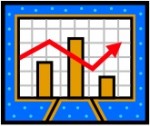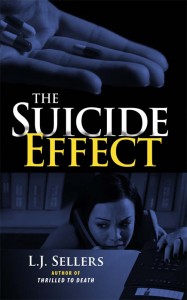Note: I wrote this guest blog earlier this year but it’s worth updating and reposting.
After publishing ten books—two with a small publisher, the rest without—I’ve come to two conclusions:
1) Digital self-publishing is a straightforward process that isn’t particularly difficult or expensive.
2) There is nothing a small publisher can or will do for writers that they can’t do better for themselves. I don’t mean literally do everything yourself, but a writer can contract for production services as well as a publisher can.
Why? Small presses are often run by a few dedicated, but overworked individuals. They typically contract out most services, and they often pay bottom dollar. I know this because I’ve worked as freelance editor and turned down all of the work offered by small presses because they simply don’t pay enough. Small presses are trying to profit and survive like everyone else and they cut costs where they can.
A large publisher can offer distribution and promotional backing, but most small publishers don’t offer either, so what’s left for the author is the label of being traditionally published and the convenience of having someone else contract the production work. Giving up most of the profit for these small advantages is a hard bargain that I don’t recommend. As the author, you have to sell the book no matter who publishes it, so you might as well make the investment, publish it yourself, and reap the rewards
The three main elements to producing a quality e-book are editing, cover design, and formatting. Many authors are tempted to do all three themselves to save money. But unless you’re incredibility talented and have all the time in the world, it’s probably not a cost-effective decision.
Editing can be expensive, especially if you contract for content evaluation, but you can keep the cost down by sending your manuscript to beta readers or working with a critique group to fine tune the plot and structure. You should, of course, print and read the manuscript out loud before paying anyone else to proof it. After carefully reading it yourself, send it to a professional editor for line editing and proofreading. Many editors charge $1500 and up, but you don’t have to pay that much. You can find someone to proofread or edit your manuscript for $300–$800. depending on the length of the novel. If you pay less, your editor will be in a rush and probably won’t do a good job. If you pay more, it may take a long time to earn back your investment.
A good cover is also essential. Most cover artists charge a flat fee, and you can expect to pay between $150 and $500. Some charge a lot more than that, but why spend that much if you don’t have to? One way to save money is to find the right image yourself, so you’re not paying the artist for that time. One of the great things about self-publishing an e-book is that you can revise it as often as you want, including creating a new cover down the road when the book is making money. The best way to find a cover designer is to network with other writers, including joining listservs that focusing on marketing.
Formatting: I originally thought I would learn to format my own e-books to save money. Other authors make it sound easy. But I quickly decided that the time and frustration spent on the learning curve was not cost-effective. Time is money. For me, it made more sense to send my Word files and cover jpgs to a professional for formatting. The e-book I got back was gorgeous. In fact, I received two files: a mobi file to upload to Amazon and an epub to upload everywhere else. I recommend working with a formatter who produces these two types of files.
Readers’ biggest complaint about e-books is the formatting. Getting it right is essential. Rates may vary, but if you’re starting with a Word document, it shouldn’t cost more than around $150, depending on how clean your file is. For authors who have a backlist and novels that are in book form instead of Word documents, those books will need to be scanned, and the cost of e-book production will be more expensive. The number of errors from the optical character recognition is also much higher. It might be cost-effective to pay a very fast typist to transcribe your published book into a Word document before sending it to a formatter. You’ll end up with fewer errors too.
Taking the lowest rates I’ve mentioned ($300, $150, and $150), you can conclude that it will cost at least $600 to produce a quality e-book. I raided my very small retirement account to publish my first six books, and I considered it a small business loan to myself. I now treat my novel-writing career as a business instead of a hobby and it has paid off for me.
How long does it take to earn back a $600–$1000 investment? That depends on many things, including how many novels you have on the market. The more books you have, the more credibility you have, which is why I decided to do mine back to back in 2009. Assuming you’ve written a terrific story and produced a quality product, the biggest factor is how much time you’re willing to spend promoting. I spent at least two hours a day for six months, plus one exclusive two-week period during which I promoted eight hours a day (blogs, press releases, reader forums, etc.). I continue to spend at least an hour every day on promotional activities. For the record, I made my money back by the end of the year, and going forward is all profit.
It’s your book and you’ve invested your money, you might as well invest your time too and make it pay off.
![]() I’ll still be writing like mad and watching my books on the market, but I’ve already stopped doing the production aspect. The other major thing that will change is that I’ll lose control of the pricing and promotion. I have mixed feelings about that. On one hand, it’s a relief. Watching the rankings—which equal visibility—and constantly adjusting pricing and promotional time & money is a lot pressure.
I’ll still be writing like mad and watching my books on the market, but I’ve already stopped doing the production aspect. The other major thing that will change is that I’ll lose control of the pricing and promotion. I have mixed feelings about that. On one hand, it’s a relief. Watching the rankings—which equal visibility—and constantly adjusting pricing and promotional time & money is a lot pressure.


 I finally took the plunge! Many traditionally published authors have self-published their backlist titles and/or unsold manuscripts as e-books, and now I’ve joined them in this exciting venture. Why not?
I finally took the plunge! Many traditionally published authors have self-published their backlist titles and/or unsold manuscripts as e-books, and now I’ve joined them in this exciting venture. Why not?